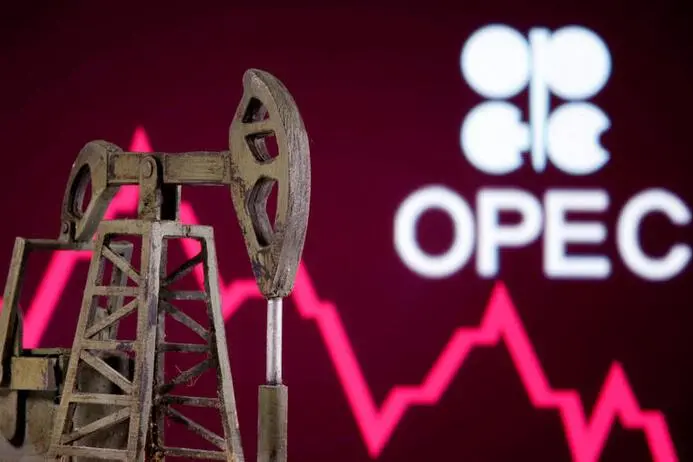PHOTO
OPEC+ could tweak its latest oil output agreement which calls for some output cuts to be reversed later this year if needed to support the market, top OPEC+ ministers said on Thursday after a bearish market reaction to the complex deal.
Top ministers and officials from OPEC+, which groups the Organization of the Petroleum Exporting Countries and allies led by Russia, at an economic forum at St Petersburg also praised the agreement and said the oil demand outlook was positive.
Some OPEC+ members, including Russia, agreed on Sunday to phase out voluntary cuts of 2.2 million barrels per day over a year beginning from October. OPEC+ also agreed to maintain other cutbacks amounting to 3.66 million bpd until end-2025.
Oil has dropped this week, with benchmark Brent crude touching a four-month low below $77 a barrel on Tuesday, pressured by skepticism about the impact of boosting supply at a time of rising output outside OPEC+ and doubts about demand.
"It's a year and a half agreement, it has all the mechanics, some of the mechanics are not new, we have also exercised it before," Saudi Energy Minister Prince Abdulaziz bin Salman said. "Especially this issue of pausing or reversing."
Russian Deputy Prime Minister Alexander Novak said the current OPEC+ agreement is helping to balance supply and demand and provides certainty for energy markets, adding that the group might adjust it if necessary.
"However, we are ready to react quickly to market uncertainties," Novak, sitting alongside the Saudi energy minister and other guests, told the forum.
On Thursday Brent was trading above $78, finding support from growing expectations of an interest rate cut from the U.S. Federal Reserve.
STRONG DEMAND
OPEC Secretary General Haitham Al Ghais, also in St Petersburg, defended the OPEC+ agreement, calling it a success and expressed optimism about continued strong oil demand, citing a rebound in travel.
OPEC+, which groups 22 nations, is currently cutting production by 5.86 million bpd, or about 5.7% of global demand, to bolster the market.
Sunday's meeting was notable for the fact that the eight OPEC+ members which have been making the extra cut of 2.2 million bpd met in person in Riyadh, while other members joined the talks online.
"I would call them the 'Great 8'," UAE Energy Minister Suhail Al Mazrouei said at the forum, referring to the group which also includes Saudi Arabia, Russia, Algeria, Kazakhstan, Kuwait, Oman and Iraq.
The UAE received a higher output target as part of Sunday's agreement to reflect its efforts to boost production capacity. The issue of quotas is controversial for OPEC+ and last year prompted Angola to leave the group.
The UAE has been committed to OPEC+, consumers and the market despite some media reports suggesting otherwise, the minister added. He has previously said the UAE's plans to boost capacity do not mean the country was going to leave OPEC.
Speaking to reporters, Novak said Russia was working on establishing its oil production capacity by autumn 2025. OPEC+ on Sunday postponed discussions on output capacity until November 2025.
To try to defuse disagreements, the group has tasked three independent consultancies - IHS, Wood Mackenzie and Rystad - to assess member capacity.
"It's a difficult issue," Novak said.
(Reporting by Vladimir Soldatkin and Olesya Astakhova; additional reporting by Yousef Saba, writing by Maxim Rodionov and Alex Lawler; editing by Jason Neely and Jan Harvey)





















